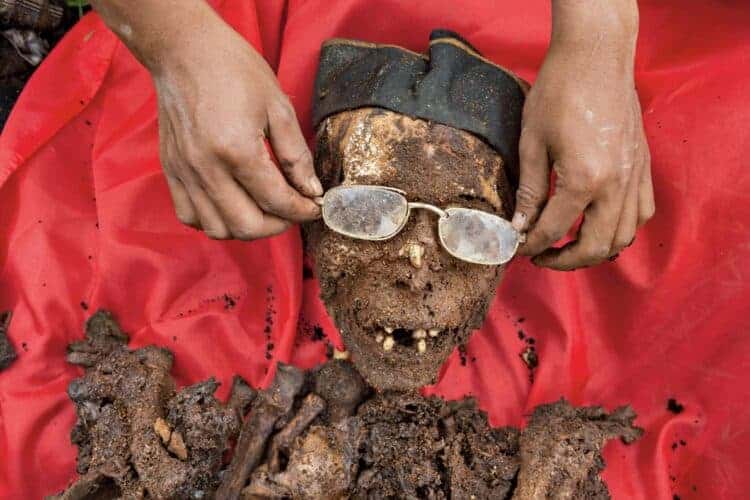Archaeologists have an intrinsic relationship with the dead, since we deal with the past. So this story of the death rituals of the Toraja of Sulawesi should give us some pause for how we think about death and their archaeological signatures.

When Death Doesn’t Mean Goodbye
National Geographic, March 2016
This Community in Sulawesi, Indonesia Keeps the Dead in Homes for Years
Inverse, 25 March 2016
Cultures and societies respect the dead differently all around the world. Every year on my father’s side of the family, all my relatives gather at the cemetery where my ancestors are buried to take part in the Chinese ritual called Qingming, or Cleaning of the Grave. We lay out a full meal of chicken, duck, and rice, pour beer and tea, light candles, and even burn paper money so our deceased loved ones are comfortable in the afterlife. For the people living in the region of South Sulawesi, one of Indonesia’s 17,508 islands just east of Borneo, death is a long and sacred process — one where death does not come until the body leaves the home.
The Toraja of Sulawesi keep the bodies of the deceased in their homes for as long as a few years, believing “that a dead person who is still at home is not dead.” National Geographic documented the culture’s sacred tradition in a video, revealing their lavish celebrations for the dead. When a loved one passes away, the family members treat the body as if the person were still alive. They describe death as prolonged sleep. Torajans take the utmost care of the body, cleaning it and brushing off dirt, changing its clothes, praying with it, feeding it, and leaving the lights on in the evening.















![[Free Book] The Prehistory of Human Migration – Human Expansion, Resource Use, and Mortuary Practice in Maritime Asia](https://www.southeastasianarchaeology.com/wp-content/uploads/2024/07/web-cover-120x86.jpg)









